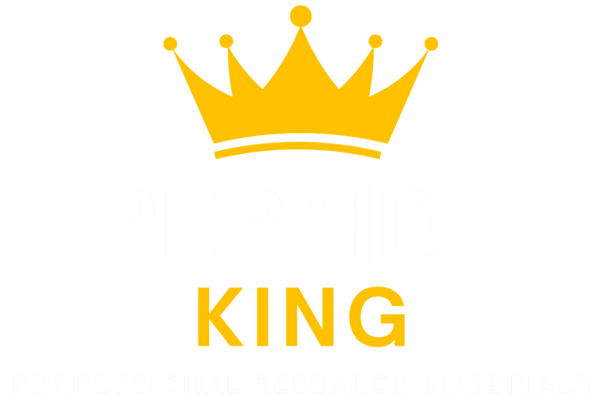Peptide Purity
ALL PRODUCTS ON THIS SITE ARE INTENDED AS RESEARCH CHEMICALS ONLY. This designation allows the use of research chemicals strictly for in vitro testing and laboratory experimentation only. All product information available on this website is for educational purposes only. Bodily introduction of any kind into humans or animals is strictly forbidden by law. This product should only be handled by licensed, qualified professionals. This product is not a drug, food, or cosmetic and may not be misbranded, misused or mislabeled as a drug, food or cosmetic.
ALL ARTICLES AND PRODUCT INFORMATION PROVIDED ON THIS WEBSITE ARE FOR INFORMATIONAL AND EDUCATIONAL PURPOSES ONLY. The products offered on this website are furnished for in-vitro studies only. In-vitro studies (Latin: in glass) are performed outside of the body. These products are not medicines or drugs and have not been approved by the FDA to prevent, treat or cure any medical condition, ailment or disease. Bodily introduction of any kind into humans or animals is strictly forbidden by law.
Please review our Zero Tolerance Policy regarding our products. Any indication against our Zero Tolerance Policy will results in refusal of service.
-----------------------------------------------------------------------------------------------------------
How is Peptide Purity Achieved and Verified?
At PeptideKing.is, we provide peptides that exceed 99% purity. Using state-of-the-art solution and solid phase peptide synthetic technology, Peptide King is able to offer the finest quality peptides and proteins fit for any research study or application. Peptide purity is achieved and verified through uncompromising manufacturing and production processes, quality control measures, and the implementation of both high-performance liquid chromatography and mass spectrometry analysis from the best Third-Party testing facility in the world.
HPLC and Mass Spectrometry
High performance liquid chromatography, or HPLC, is a scientific technique used to separate, identify, and quantify each component in a mixture. It is a superior process that allows highly accurate peptide testing to be accomplished. Mass spectrometry (MS) is a technique used to measure masses within a sample by ionizing chemical species and sorting the ions based on their mass to charge ratio. The results are plotted with the ion signal as a function of the mass to charge ratio. Both methods are highly accurate peptide testing techniques and scientifically prove the purity and identity of peptides ordered from PeptideKing.is
What is the Recommended Peptide Purity Level?
Peptide Purity of 98% or higher is always the standard recommendation. Peptide King provides only the highest purity peptides (>99% pure) for sale for research and development use. Generally, the higher the peptide purity level, the more favorable the preparation; critically, for certain applications (such as in vitro studies or clinical trials), only exceedingly pure peptides will be appropriate (greater than 98% purity). However, there are some applications for which a lower peptide purity would be acceptable. The minimum recommended peptide purity level for a given application will therefore depend upon that specific application. Examples of minimum acceptable purity levels are as follows:
Highly Pure (>95% Peptide Purity)
• In vitro and in vivo studies
• Clinical trials
• Drug studies in which peptides are used as pharmaceuticals
• Cosmetic peptides for cosmeceuticals
• Crystallography
• Monoclonal antibody production
• Quantitative protease studies and enzyme studies
• Quantitative receptor – ligand interaction studies
• Quantitative blocking and competitive inhibition studies
• Quantitative ELISA and RIA protocol standard
• Chromatography standard
Mid-range Peptide Purity (>85%)
• Peptide blocking studies (Western blot)
• Phosphorylation studies
• NMR studies
• Cell attachment studies
• Phosphorylation studies
• Semi-quantitative studies of enzyme-substrate interactions
• Epitope mapping tests
• Biological activity testing
Lower Peptide Purity (>70%)
• Peptide arrays
• Performing an ELISA standard for measuring titers of antibodies
• Antigens for polyclonal antibody production or affinity purification
